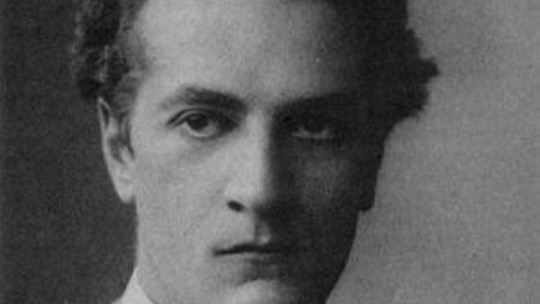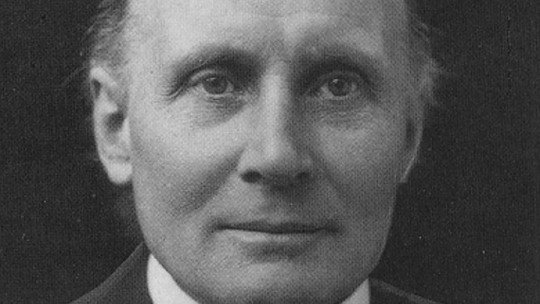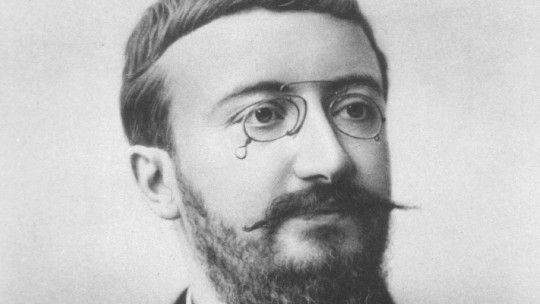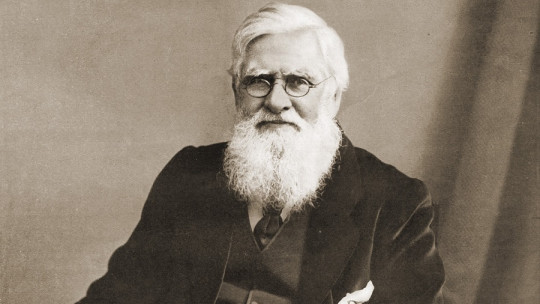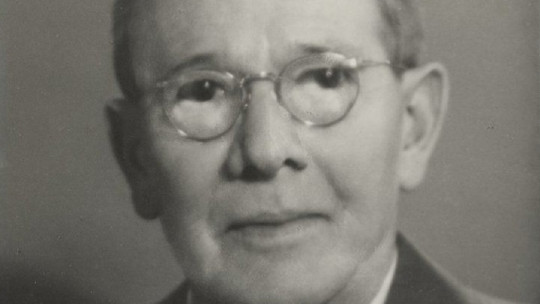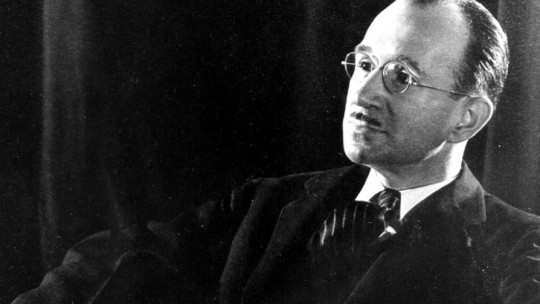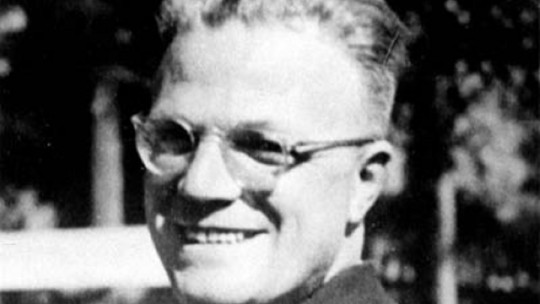
The period of the Second World War is one of the most turbulent that humanity has known in its entire history.
This era has left a multitude of figures for posterity, and Alfred Delp is one of them. With these lines we will be able to delve deeper into his life and discover what his relevance was throughout this conflict, as well as in the rest of the stages of his life, which we will also review. Here you will find a biography of Alfred Delp in summary format.
Brief biography of Alfred Delp
Alfred Delp was born in 1907, in the city of Mannheim, within the Grand Duchy of Baden, which at that time was part of the German Empire, in its southwestern region. His mother was Protestant, while his mother was Catholic. This represented a relative conflict, since he received the baptism of Catholicism, but he was also confirmed as a Protestant.
However, after an incident with the Lutheran pastor of his church, he decided once and for all to accept the Catholic confession, receiving the sacraments of First Communion and Confirmation. It was precisely the priest of this church who noticed Alfred Delp’s ease of learning and took charge of facilitating his access to the Goethe Schule institution, in the city of Dieburg.
The fact that he belonged to both branches of Christianity, that is, Catholicism and Protestantism, made him a key figure for mediation between both positions which at some times in history has become very tense.
Alfred Delp’s life at the Goethe Schule continued to have a great Catholic religious influence, this time exercised by the Jugendbund Neudeutschland, a group of students of that confession. He remained at this school until completing his studies, being the first in his class. It was then that he decided to take a step further in his religious involvement, joining the Society of Jesus, that is, the Jesuits.
At the same time, He enrolled in a philosophy degree at the University of Pullach As soon as he finished these studies, he began working as a sports teacher and prefect for the Jesuit school Stella Matutina Kolleg, located in Feldkirch, in Austrian territory. The year was 1933, the exact date on which the National Socialist regime came to power in this country.
The arrival of the Nazi regime caused many students to decide to leave the country Many students from the Stella Matutina Kolleg, together with different teachers and Alfred Delp himself, decided to move to the Black Forest region, where they founded a new school, called Kolleg St. Blasien. This institution welcomed three hundred students who had left Austria.
Alfred Delp decided, after these events, to train in theology. For this he moved to Valkenburg aan de Geul, in Limburg, belonging to the Netherlands, and later to Frankfurt, again in Germany, where he was able to finish his theological studies.
Career as a priest
Already trained as a philosopher and theologian, Alfred Delp published what would be his first work, “Tragic Existence” in 1935. This volume is humanist and religious in nature, and updates the principles of the existentialist doctrine proposed by Martin Heidegger.
When the year 1937 arrived, another milestone in the life of this author took place: he was ordained a priest. The rite took place in the German city of Munich. Precisely at the university of this city, he requested access to study for a doctorate in philosophy. However, registration was denied due to a political conflict.
By 1939, Alfred Delp was dedicated to publishing articles for the magazine Stimmen der Zeit, or in other words, “Voices of the Times.” It was a publication attached to the Society of Jesus. But this was the year in which, with the Nazi regime already controlling Germany and Austria, World War II broke out.
In 1941, the National Socialist authorities decided to close the magazine, so his work as editor ended there. Shortly thereafter he was appointed rector of the church of Saint Georg and the parish of Heilig Blut in Munich. It was in his priestly work in these churches where he began his most important work: that of resistance against Nazi barbarism
The Kreisau Circle
Alfred Delp began to work secretly to help Jewish people who came to his parishes in search of a way to leave German territory. Delp was one of the participants in achieving that goal, through different places on the Swiss border. And the Jesuits were, openly, one of the bastions of resistance against the Nazi government.
So much so, that it led to reprisals by said regime against priests and other members of the organization, as we will later see what would happen to Alfred Delp himself. The Nazis took over the religious temples, looting them. In addition, they began to closely monitor all the Jesuits, restricting their activity so that they could not participate in the resistance
Even so, there were many who continued to work underground. One of them was Augustin Rösch. head of province of the Jesuit congregation, and to whom Alfred Delp depended. It was Augustin who discovered the so-called Kreisau Circle, a movement organized to conspire against the Nazi government.
It was directed by Helmuth James von Moltke, and was made up of twenty-five members, mostly nobles or religious. This group of people was trying to devise an alternative government to National Socialism and prepare for that change, without resorting to violent tactics to achieve this goal. It was the year 1942.
The importance of Alfred Delp within the Kreisau Circle was to teach the doctrine of Catholic social teaching Likewise, he was the link between this group and some of the Catholic authorities who were also interested in overthrowing the Nazi government. Some of them were Johannes Dietz, bishop of Fulda, or Konrad von Preysing, archbishop of Berlin.
But, on July 20, 1944, an attack took place in which a group of conspirators tried to assassinate Adolf Hitler. This failed act caused the Gestapo, the regime’s police, to act ruthlessly against any hint of resistance. This is how they arrested different members of the Kreisau Circle, among whom was Alfred Delp.
Detention and last days
Alfred Delp was arrested on July 28, just a week after the attack Delp was not one of the conspirators involved in the assassination attempt, but that did not matter. He was imprisoned in Tegel prison, located in Berlin, the German capital. This fact did not make him stop exercising his religious activity. On the contrary, he began to say mass within the institution.
During his stay in Tegel prison, he also began a period of reflection on different religious issues. He also wrote different epistles. He managed to send all these works to a safe place before the trial took place in which his sentence would be known.
At the end of 1944, he had a very special visit in prison. Franz von Tattenbach, through Augustin Rösch, went to see Alfred Delp so that he could give him the final vows of the Jesuits, an act that filled him with joy, as he later wrote. This religious act was not allowed, but the prison guards did not realize what was happening.
In the first days of January 1945, The judicial process took place in which the case of Alfred Delp and other detainees, accused of conspiracy and resistance, was studied Among them was Helmuth James von Moltke himself, leader of the Kreisau Circle. All of these people were found guilty of high treason. The sentence for all of them was the harshest possible: death.
Although it had been proven that Alfred Delp had nothing to do with the attempt on the Führer’s life, he was still considered a traitor for belonging to the conspiratorial movement of the Kreisau Circle. He was also a Jesuit religious, and therefore he was declared guilty and sentenced to die, along with the rest of his companions.
He was offered a deal: freedom, in exchange for abandoning the religious congregation of the Society of Jesus. Delp rejected it. He preferred to die rather than give in to pressure from the Nazis. Finally, on February 2, 1945, Alfred Delp, like the rest of the convicts, died by hanging in the Plötzensee prison in Berlin. His body was cremated and the ashes were thrown into the sewer.



